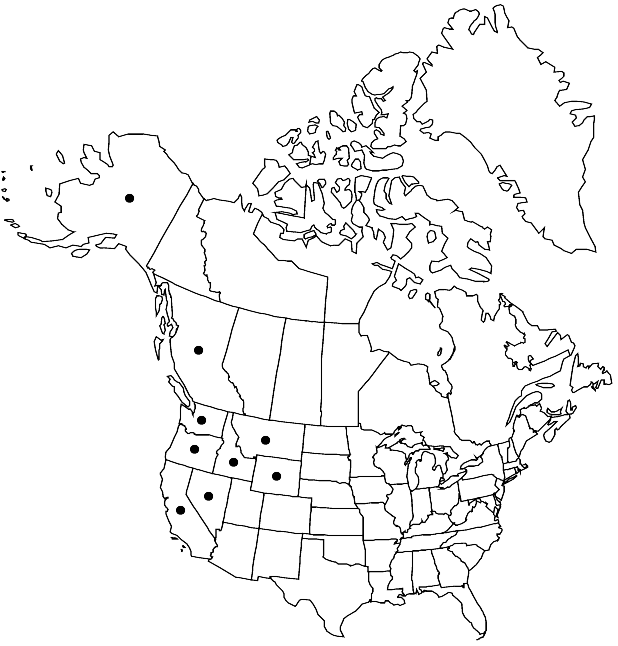Rorippa curvisiliqua
Mem. Torrey Bot. Club 5: 169. 1894.
Annuals; usually glabrous, sometimes sparsely hirsute, (trichomes cylindrical). Stems (usually few-branched from base, rarely simple), ascending or decumbent to prostrate, (0.5–)1–4(–6) dm, branched distally, (glabrous or hirsute proximally). Basal leaves not rosulate; blade margins pinnatifid. Cauline leaves petiolate or sessile; blade oblong, oblanceolate to spatulate, or obovate, (lateral lobes linear to oblong or ovate), (2–)3–9(–13) cm × 8–20(–35) mm, (lateral lobe smaller than terminal), base auriculate, margins usually pinnatifid to pinnatisect, rarely pectinate, or (terminal lobe) entire or dentate. Racemes considerably elongated. Fruiting pedicels divaricate-ascending to horizontal, straight, 1–4.5(–9) mm, (glabrous or sparsely pubescent). Flowers: sepals (rarely persistent), ascending, oblong, 0.8–2(–2.5) × 0.6–1.4 mm; petals (spreading), yellow, oblong to oblanceolate, 0.6–1.8(–2) × 0.3–1.3 mm; median filaments 1–1.7 mm; anthers ovate, 0.4–0.5 mm. Fruits siliques, curved-ascending, oblong to linear, 4–13(–18) × 1–2 mm; valves glabrous; ovules (30–)42–106 per ovary; style 0.1–0.8 mm. Seeds biseriate, brown, cordiform, 0.5–0.7 mm, colliculate. 2n = 16.
Phenology: Flowering May–Oct.
Habitat: Shores of lakes, ponds, and reservoirs, edges of pools and sloughs, swales, marshy grounds, mud flats, streamsides, sandy banks, wet roadsides, meadows, seepage areas
Elevation: 50-3100 m
Distribution

B.C., Alaska, Calif., Idaho, Mont., Nev., Oreg., Wash., Wyo.
Discussion
Rorippa curvisiliqua is a highly variable species divided artificially by R. L. Stuckey (1972) into seven varieties. They were only reluctantly recognized by R. C. Rollins (1993) and N. H. Holmgren (2005b), though these authors felt, and I concur, that it is impossible to determine any of them reliably. A collection from New Brunswick, Blaney s.n. (DAO, MO, NBM, UNB), Northumberland County, 2 Sep 2004, was most likely introduced by migratory birds.
Selected References
None.